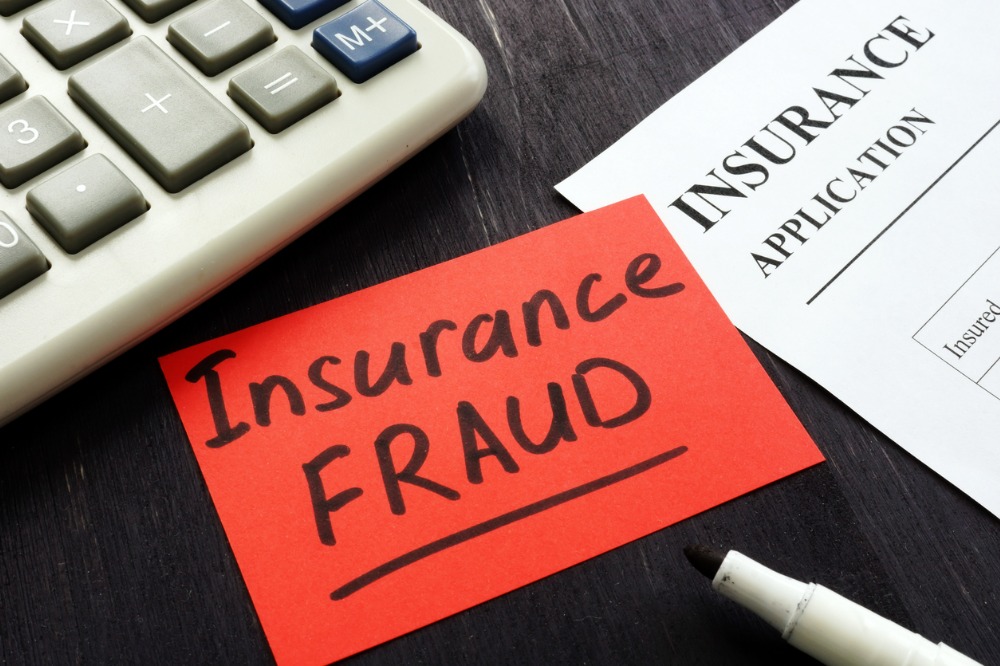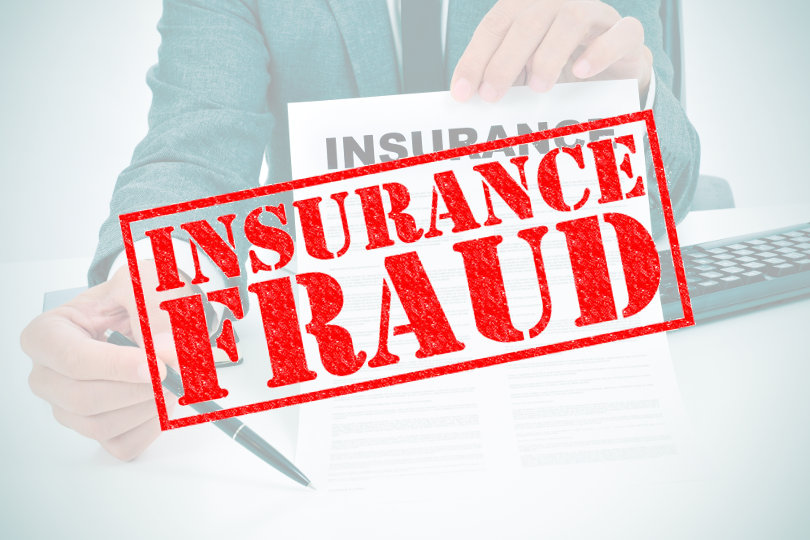Insurance fraud sets the stage for this enthralling narrative, offering readers a glimpse into a story that is rich in detail and brimming with originality from the outset. Insurance fraud, a deceptive game played at the expense of individuals, businesses, and the economy, involves the deliberate manipulation of insurance systems for personal gain. From staged accidents to fabricated claims, the methods employed by fraudsters are as diverse as the motivations driving their actions.
This exploration delves into the intricate world of insurance fraud, unveiling its various types, methods, and consequences. We will examine the motivations behind these fraudulent acts, the techniques used to perpetrate them, and the far-reaching impact they have on individuals, insurance companies, and society as a whole.
Types of Insurance Fraud
Insurance fraud is a serious crime that costs insurance companies and consumers billions of dollars each year. It involves intentionally deceiving an insurance company to obtain a payout or benefit that is not rightfully earned. Insurance fraud can take many forms, and it is essential to understand the different types to effectively combat it.
Health Insurance Fraud
Health insurance fraud is a significant problem in the United States, costing billions of dollars annually. It involves deception related to medical services, treatments, and claims to obtain financial benefits.
- False or exaggerated claims: This involves submitting claims for services that were never provided, exaggerating the severity of an illness or injury, or billing for more expensive treatments than what was actually received.
- Phantom billing: This involves billing for services that were never rendered, such as fake medical tests or procedures.
- Upcoding: This involves billing for a more expensive service than the one actually provided. For example, billing for a complex procedure when a simpler one was performed.
- Medically unnecessary services: This involves billing for services that are not medically necessary, such as unnecessary tests or treatments.
- Patient brokering: This involves recruiting patients for specific medical services or treatments, often in exchange for kickbacks or referral fees.
The motivation behind health insurance fraud can vary. Some individuals may be motivated by financial gain, while others may be seeking to obtain access to medical services they cannot afford.
Auto Insurance Fraud
Auto insurance fraud is another common type of insurance fraud, involving deceptive practices related to vehicle accidents and claims. It can be committed by both individuals and organized criminal groups.
- Staged accidents: This involves intentionally causing a car accident to file a fraudulent insurance claim. The staged accident may involve a minor collision or a more elaborate scheme involving multiple vehicles.
- Fake accidents: This involves filing a claim for an accident that never occurred. For example, claiming that a car was stolen and totaled when it was actually sold or scrapped.
- Inflated repair costs: This involves exaggerating the cost of repairs for a damaged vehicle to receive a larger insurance payout. This can involve inflating the cost of parts or labor, or billing for repairs that were never performed.
- Ghost vehicles: This involves insuring a vehicle that does not exist or is already totaled, and then filing a claim for its loss.
- Non-existent drivers: This involves adding a fictitious driver to an insurance policy to reduce premiums, then filing a claim using the fake driver’s information.
Auto insurance fraud can be motivated by financial gain, attempting to avoid paying higher premiums, or even trying to cover up other criminal activities.
Property Insurance Fraud
Property insurance fraud involves deception related to property damage or loss to obtain an insurance payout. This type of fraud can be committed by homeowners, renters, businesses, and even criminals.
- Arson: This involves intentionally setting fire to a property to collect insurance money. This can be done for financial gain, to cover up other crimes, or out of spite.
- Fake theft claims: This involves reporting a theft of property that never occurred or claiming a greater loss than what actually happened.
- Inflated damage claims: This involves exaggerating the extent of damage to a property to receive a larger insurance payout. This can involve claiming more damage than actually exists, or billing for repairs that were never performed.
- Staging accidents: This involves intentionally causing damage to a property to file a fraudulent insurance claim. This can involve causing minor damage to a property or creating a more elaborate scheme involving multiple parties.
The motivations behind property insurance fraud can include financial gain, covering up criminal activities, or seeking revenge against an insurance company or another individual.
Impact of Insurance Fraud

Insurance fraud, a serious crime that undermines the integrity of the insurance system, has significant financial consequences for individuals, insurance companies, and the economy as a whole. It leads to higher premiums for honest policyholders, reduces the availability of insurance, and diverts resources away from legitimate claims.
Financial Consequences, Insurance fraud
The financial impact of insurance fraud is substantial, affecting individuals, insurance companies, and the broader economy.
- Individuals: Honest policyholders bear the brunt of insurance fraud. Increased premiums due to fraudulent claims erode their purchasing power and make insurance less affordable. In some cases, individuals may be denied insurance coverage altogether due to the perception of increased risk associated with fraudulent activities.
- Insurance Companies: Insurance companies suffer significant financial losses due to fraudulent claims. They must cover the costs of fraudulent payouts, which ultimately impact their profitability. This can lead to reduced investment in research and development, fewer resources for customer service, and even higher premiums for honest policyholders.
- Economy: Insurance fraud has a ripple effect on the economy. It undermines the stability of the insurance industry, which plays a crucial role in risk management and economic growth. The higher premiums and reduced access to insurance can hinder economic activity, particularly for small businesses and individuals.
Impact on Premiums and Accessibility
Insurance fraud directly affects the cost of insurance premiums and the accessibility of insurance coverage.
- Higher Premiums: Insurance companies must factor in the cost of fraudulent claims when setting premiums. The more fraudulent claims, the higher the premiums become for all policyholders, even those who are honest.
- Reduced Accessibility: Insurance companies may become more cautious in offering insurance coverage in areas where fraud is prevalent. This can make it difficult for individuals and businesses to obtain insurance, particularly in high-risk areas.
Case Studies and Statistics
Several case studies and statistics highlight the devastating impact of insurance fraud.
- The National Insurance Crime Bureau (NICB): In 2022, the NICB estimated that insurance fraud cost the U.S. economy approximately $40 billion annually. This includes various types of fraud, such as staged accidents, fake claims, and identity theft.
- The FBI: The FBI considers insurance fraud a significant financial crime, with numerous investigations and prosecutions underway. In 2021, the FBI reported a significant increase in insurance fraud related to the COVID-19 pandemic, with individuals and businesses exploiting the crisis for financial gain.
- The Coalition Against Insurance Fraud: This non-profit organization works to combat insurance fraud through education, awareness, and advocacy. The coalition has highlighted numerous cases of insurance fraud involving staged accidents, fake injuries, and inflated claims, demonstrating the wide range of fraudulent activities impacting the insurance industry.
Detection and Prevention of Insurance Fraud

Insurance fraud is a serious issue that impacts both insurance companies and honest policyholders. It can lead to higher premiums, reduced coverage, and even criminal prosecution. To combat this, insurance companies and law enforcement agencies employ a variety of methods to detect and prevent fraud.
Role of Insurance Companies and Law Enforcement
Insurance companies have a vested interest in detecting and preventing fraud, as it directly affects their profitability and the integrity of their operations. They invest in sophisticated fraud detection systems and employ teams of investigators to analyze suspicious claims. Law enforcement agencies, on the other hand, play a crucial role in investigating and prosecuting insurance fraud cases. They work closely with insurance companies to gather evidence and build cases against perpetrators.
Fraud Detection Techniques
Insurance companies utilize a range of techniques to identify potential fraud:
Data Analysis
- Pattern Recognition: By analyzing large datasets of claims, companies can identify patterns that may indicate fraud. For example, an unusually high number of claims from a specific area or involving a particular type of injury might raise red flags.
- Statistical Modeling: Statistical models can be used to predict the likelihood of fraud based on various factors, such as claim history, demographics, and medical records.
- Data Mining: This technique involves searching for hidden patterns and relationships within large datasets, which can help identify suspicious claims that may have been overlooked.
Surveillance
- Video Surveillance: Insurance companies may utilize video surveillance at accident scenes or in areas where claims are frequently filed to gather evidence of fraudulent activity.
- GPS Tracking: Tracking devices can be used to monitor the location of vehicles involved in accidents, verifying the accuracy of claims.
- Social Media Monitoring: Insurance companies may analyze social media posts and activity to verify the legitimacy of claims or identify potential fraudsters.
Investigations
- Claim Investigations: Insurance investigators interview claimants, review medical records, and examine evidence to verify the validity of claims.
- Background Checks: Companies may conduct background checks on claimants to verify their identity and history, particularly if they have a history of suspicious claims.
- Forensic Accounting: This specialized field involves analyzing financial records to detect fraudulent transactions and activities.
Preventative Measures
Insurance companies implement a range of measures to prevent fraud:
Claim Process Improvements
- Streamlining Claim Processes: Companies can reduce the opportunities for fraud by simplifying and streamlining their claim processes. This can make it more difficult for fraudsters to manipulate the system.
- Increased Security Measures: Implementing stronger security measures, such as multi-factor authentication and encryption, can help protect sensitive data and prevent unauthorized access to claims information.
- Fraud Awareness Training: Providing training to employees about fraud detection and prevention can help them identify suspicious claims and report them to the appropriate authorities.
Public Awareness Campaigns
- Public Education: Insurance companies can educate the public about the dangers of insurance fraud and encourage them to report any suspicious activity.
- Community Partnerships: Working with law enforcement and community organizations can help raise awareness of insurance fraud and deter potential perpetrators.
Legal Consequences of Insurance Fraud
Insurance fraud is a serious crime that carries significant legal consequences. Individuals and organizations engaging in this activity face a range of penalties, including fines, imprisonment, and revocation of licenses. The legal framework surrounding insurance fraud encompasses both criminal and civil law, with each jurisdiction having its own specific laws and regulations.
Criminal Law and Insurance Fraud
Criminal law plays a crucial role in prosecuting insurance fraud cases. Individuals who commit insurance fraud may face charges such as theft, conspiracy, and perjury. The severity of the charges and penalties depends on factors such as the amount of money involved, the sophistication of the scheme, and the intent of the perpetrator.
- Fines: Individuals convicted of insurance fraud can be fined substantial amounts of money, which may vary depending on the jurisdiction and the nature of the offense.
- Imprisonment: Depending on the severity of the fraud, individuals can face imprisonment ranging from a few months to several years.
- Revocation of Licenses: Individuals involved in insurance fraud, such as insurance agents or brokers, may have their licenses revoked, preventing them from working in the insurance industry.
Civil Law and Insurance Fraud
In addition to criminal prosecution, insurance fraud can also be addressed through civil law. Insurance companies may file civil lawsuits against individuals or organizations who have committed fraud, seeking to recover the money they lost.
- Restitution: Civil lawsuits may result in restitution orders, requiring the perpetrator to repay the insurance company for the losses incurred due to the fraud.
- Injunctive Relief: Courts may issue injunctions to prevent individuals or organizations from engaging in further insurance fraud activities.
- Punitive Damages: In some cases, courts may award punitive damages, which are intended to punish the perpetrator and deter future fraud.
Examples of High-Profile Insurance Fraud Cases
Several high-profile insurance fraud cases have made headlines in recent years, showcasing the severity of the consequences. For instance, the case of [insert example of a high-profile insurance fraud case] resulted in [explain the outcome of the case, including fines, imprisonment, or other penalties]. Another notable case is [insert another example of a high-profile insurance fraud case], where [explain the outcome of the case, including fines, imprisonment, or other penalties].
Ethical Considerations of Insurance Fraud
Insurance fraud, while often perceived as a victimless crime, carries significant ethical implications that impact trust, fairness, and the integrity of the entire insurance industry. It undermines the very foundation of insurance, which relies on a system of shared risk and responsibility.
Impact on Trust and Fairness
The ethical implications of insurance fraud extend far beyond the immediate financial consequences. Fraud erodes trust between individuals and insurance companies, creating a climate of suspicion and distrust. This can lead to increased premiums for honest policyholders, as insurers try to offset the losses caused by fraudulent claims. It also undermines the principle of fairness, where those who act honestly and responsibly end up bearing the burden of those who engage in fraudulent activities.
Future Trends in Insurance Fraud
The landscape of insurance fraud is constantly evolving, driven by technological advancements, changing societal norms, and the increasing sophistication of fraudsters. Understanding these emerging trends is crucial for insurance companies to stay ahead of the curve and protect their bottom line.
The Rise of Organized Crime
Organized crime syndicates are increasingly involved in insurance fraud, leveraging sophisticated techniques and resources to perpetrate large-scale schemes. This trend poses significant challenges for insurers due to the organized nature of these operations, which often involve multiple individuals and complex networks.
Cybercrime and Data Breaches
The digital age has opened up new avenues for insurance fraud, with cybercriminals exploiting vulnerabilities in online systems to steal sensitive data and commit fraud. Data breaches can expose personal information, leading to identity theft and fraudulent claims.
Artificial Intelligence (AI) and Machine Learning (ML)
While AI and ML have the potential to combat insurance fraud, they can also be used by fraudsters to create more sophisticated and difficult-to-detect schemes. AI-powered tools can be used to generate fake documents, manipulate data, and automate fraudulent claims processes.
Social Media and Online Platforms
Social media platforms and online marketplaces have become fertile ground for insurance fraud. Fraudsters can use these platforms to spread misinformation, recruit accomplices, and facilitate fraudulent transactions.
The Impact of Climate Change
Climate change is increasing the frequency and severity of natural disasters, creating opportunities for insurance fraud. Fraudsters may exploit these events to file false claims for damages or inflate the cost of repairs.
Challenges and Opportunities
Combating future trends in insurance fraud requires a multi-pronged approach that combines technological advancements with human expertise.
Challenges
- Keeping pace with technological advancements: Fraudsters are constantly evolving their techniques, making it challenging for insurers to stay ahead of the curve.
- Detecting sophisticated fraud schemes: AI-powered fraud schemes can be difficult to detect using traditional methods.
- Data privacy and security: Balancing data privacy with the need to share information to detect fraud can be challenging.
Opportunities
- Leveraging AI and ML: AI and ML can be used to analyze vast amounts of data, identify patterns, and detect fraudulent activity.
- Improving data sharing and collaboration: Sharing information and collaborating with law enforcement agencies can help to disrupt organized crime networks.
- Developing new fraud prevention strategies: Insurers need to develop innovative strategies to prevent and detect fraud, such as using behavioral analytics and biometrics.
Predictions and Recommendations
– Insurers need to invest in advanced analytics and fraud detection technologies to identify and prevent emerging fraud trends.
– Collaboration with law enforcement agencies, industry partners, and technology providers is essential to combat organized crime and cybercrime.
– Insurers should educate their customers about common fraud schemes and encourage them to report suspicious activity.
– Continuous monitoring and adaptation are crucial to stay ahead of evolving fraud techniques.
Wrap-Up
Understanding the complexities of insurance fraud is crucial for both individuals and institutions. By recognizing the red flags, implementing preventative measures, and fostering ethical behavior, we can work collectively to mitigate the risks and protect the integrity of the insurance industry. As technology continues to evolve, so too will the methods employed by fraudsters. Staying informed, adapting to new challenges, and collaborating to combat this pervasive issue are essential for a secure and sustainable future.
Insurance fraud is a serious problem, costing the industry billions of dollars each year. If you’re looking for insurance, it’s important to shop around and compare rates from different companies to ensure you’re getting the best deal. You can easily get free insurance quotes online, which can help you find the best coverage at the most affordable price.
Remember, being informed and comparing quotes can help you avoid falling victim to fraudulent schemes.
